My suspicion for a long time has been that when many (most?) people think about school, their thoughts tend to focus on two things: tests and grades (obviously). It has seemed to me for many years that education was supposed to be about acquiring information and the tools to process that information effectively. But, obsessed with scores, ranking, and, generally, being competitive, etc., as our society is, it appears that for many people the most important aspect of “education” is the grade “given.” NOTE: grades are supposed to be earned by the student and simply assigned by the instructor (see below), but common parlance is that the teacher “gives” the student a grade, thereby completely denying any possible actual value it might have as a ranking and/or competitive tool, since a gift cannot possibly have any comparative value. But, people do insist on their little myths, don’t they? Anyway, here are a few things from my files which have some relation to grades and grading which might generate a chuckle, or two, as this school year gets into full swing.
Having been a teacher for many years, as well as being the son and grandson of teachers and the son of an elementary school librarian, I am quite sympathetic to the challenges all teachers face in trying to deal with testing and grading. It’s quite easy to create difficulties and/or complications without any reason to think that you are doing so, as in this case of a very simple, basic elementary math problem:
Teacher: "If I gave you 2 cats and another 2 cats and another 2, how many would you
have?”
Johnny: “Seven."
Teacher: "No, listen carefully... If I gave you two cats, and another two cats and another
two, how many would you have?"
Johnny: "Seven."
Teacher: "Let me put it to you differently. If I gave you two apples, and another two
apples and another two, how many would you have?"
Johnny: "Six."
Teacher: "Good. Now if I gave you two cats, and another two cats and another two,
how many would you have?"
Johnny: "Seven!"
Teacher: "Johnny, where in the heck do you get seven from?!"
Johnny: "Because I've already got a freaking cat!
The problem, of course, is that, despite what some folks would like to believe, teachers are NOT incapable of error because they can’t possibly have a complete handle on ALL possibly relevant information at all times. This means that they can (gasp!) make a mistake! Here’s a simple one as an example:
Such things have been known to “get” to teachers after some years, which just MIGHT explain THIS math problem (and the student’s response).
I confess to a particular fondness for this Doonesbury strip from a good many years ago which touches quite boldly on some of the thinking about grading at the time.
I guess that, in the long run, it all boils down to --
🖖🏼 LLAP,
Dr. B
“There can be no keener revelation of a society’s soul than the way in which it treats its children.”
— Nelson Mandela
“Words are, in my not-so-humble opinion, our most inexhaustible source of magic; capable of both inflicting injury, and remedying it.” ― Albus Dumbledore, Harry Potter and the Deathly Hallows
“Not everything which can be counted counts, and not everything that counts can be counted.”
— from a sign in Albert Einstein’s office
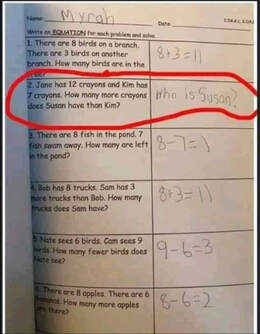
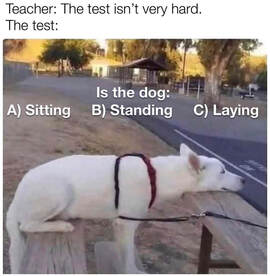
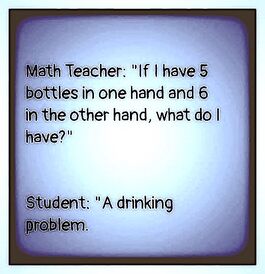


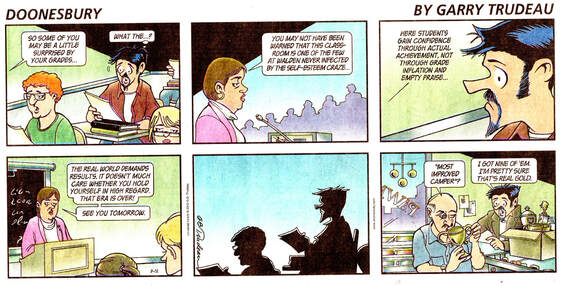
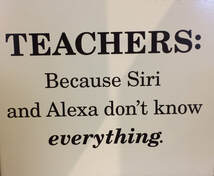
 RSS Feed
RSS Feed